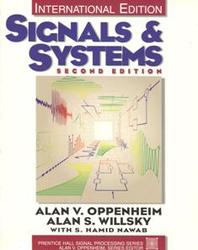Reconfigurable Computing: The Theory and Practice of FPGA-Based Computation
暫譯: 可重構計算:基於FPGA的計算理論與實踐
Scott Hauck, André DeHon
- 出版商: Morgan Kaufmann
- 出版日期: 2007-11-01
- 定價: $3,500
- 售價: 8.0 折 $2,800
- 語言: 英文
- 頁數: 944
- 裝訂: Hardcover
- ISBN: 0123705223
- ISBN-13: 9780123705228
-
相關分類:
FPGA
立即出貨 (庫存=1)
買這商品的人也買了...
-
 Signals & Systems, 2/e (IE-Paperback)
Signals & Systems, 2/e (IE-Paperback)$1,250$1,225 -
 系統程式 (System Software: An Introduction to Systems Programming, 3/e)
系統程式 (System Software: An Introduction to Systems Programming, 3/e)$600$588 -
 System Software: An Introduction to Systems Programming, 3/e (IE-Paperback)
System Software: An Introduction to Systems Programming, 3/e (IE-Paperback)$980$960 -
 Field and Wave Electromagnetics, 2/e (Paperback)
Field and Wave Electromagnetics, 2/e (Paperback)$1,150$1,127 -
 Computer Organization and Design: The Hardware/Software Interface, 3/e(IE) (美國版ISBN:1558606041)
Computer Organization and Design: The Hardware/Software Interface, 3/e(IE) (美國版ISBN:1558606041)$1,200$1,176 -
 Microsoft Windows Server 2003 超級管理手冊─網路建置篇 (Microsoft Windows Server 2003 Administrator's Companion)
Microsoft Windows Server 2003 超級管理手冊─網路建置篇 (Microsoft Windows Server 2003 Administrator's Companion)$580$458 -
 Head First Design Patterns (Paperback)
Head First Design Patterns (Paperback)$2,430$2,308 -
 HTML、JavaScript 與 CSS 網頁程式設計
HTML、JavaScript 與 CSS 網頁程式設計$490$382 -
 Interactive Computer Graphics: A Top-Down Approach using OpenGL, 4/e (美國版ISBN:0321321375 )
Interactive Computer Graphics: A Top-Down Approach using OpenGL, 4/e (美國版ISBN:0321321375 )$1,150$1,127 -
 Microsoft, Unix 及 Oracle 主機與網路安全 (Special OPS: Host and Network Security for Microsoft, UNIX, and Oracle)
Microsoft, Unix 及 Oracle 主機與網路安全 (Special OPS: Host and Network Security for Microsoft, UNIX, and Oracle)$690$538 -
 計算機組織與設計 (Computer Organization and Design: The Hardware/Software Interface, 3/e)
計算機組織與設計 (Computer Organization and Design: The Hardware/Software Interface, 3/e)$680$646 -
 Database System Concepts, 5/e (IE) (美國版ISBN:0072958863)
Database System Concepts, 5/e (IE) (美國版ISBN:0072958863)$1,150$1,127 -
 Linux Kernel 完全剖析
Linux Kernel 完全剖析$750$585 -
 Windows Server 2003 網路架構訓練手冊 (MCSA/MCSE Self-Paced Training Kit (Exam 70-291): Implementing, Managing, and Maintaining a Microsoft Windows Server 2003 Network Infrastructure)
Windows Server 2003 網路架構訓練手冊 (MCSA/MCSE Self-Paced Training Kit (Exam 70-291): Implementing, Managing, and Maintaining a Microsoft Windows Server 2003 Network Infrastructure)$720$569 -
 密碼學與網路安全(第四版) (Cryptography and Network Security: Principles and Practice, 4/e)
密碼學與網路安全(第四版) (Cryptography and Network Security: Principles and Practice, 4/e)$680$646 -
 電腦網際網路 (Computer Networking: A Top-Down Approach Featuring The Internet, 3/e)
電腦網際網路 (Computer Networking: A Top-Down Approach Featuring The Internet, 3/e)$600$540 -
 SUSE Linux Enterprise Server 10 網管實戰寶典
SUSE Linux Enterprise Server 10 網管實戰寶典$620$527 -
 網路概論, 5/e
網路概論, 5/e$580$551 -
 極意之道-ASP.NET AJAX / Silverlight 聖典 + 極意之道─次世代 .NET Framework 3.5 資料庫開發聖典 ASP.NET 篇
極意之道-ASP.NET AJAX / Silverlight 聖典 + 極意之道─次世代 .NET Framework 3.5 資料庫開發聖典 ASP.NET 篇$780$608 -
 程式之美-微軟技術面試心得
程式之美-微軟技術面試心得$490$416 -
 Mac OS X for Unix Geeks, 4/e (Paperback)
Mac OS X for Unix Geeks, 4/e (Paperback)$1,360$1,332 -
 資訊安全導論
資訊安全導論$450$405 -
 C 程式設計藝術, 6/e (國際版)(C How to program, 6/e)
C 程式設計藝術, 6/e (國際版)(C How to program, 6/e)$750$675 -
 新趨勢網路概論, 2/e
新趨勢網路概論, 2/e$580$493 -
 Reconfigurable Logic: Architecture, Tools, and Applications (Hardcover)
Reconfigurable Logic: Architecture, Tools, and Applications (Hardcover)$3,060$2,907
商品描述
Table of Contents
Preface
Introduction
Part One: Hardware
Part I INTRO
Chapter 1 - General-Purpose FPGA Architecture
Chapter 2 - Reconfigurable Computing Devices
Chapter 3 - Reconfigurable Computing Systems
Chapter 4 - Reconfiguration Management
Part Two: Software
Part II Intro
Chapter 5 - Computer Models and System Architectures
André DeHon Chapter 6 - Hardware Description Languages (VHDL)
Chapter 7 - Compilation for Reconfigurable Computing Machines
Chapter 8 - Streaming Models
8.1 MATLAB/SIMULINK
8.2 SCORE
Chapter 9 SIMD/Vector
Chapter 10 - OS/Runtime Systems
Chapter 11 - JHDL
Chapter 12 -Technology Mapping
Chapter 13 - Placement
13.1 General-purpose / FPGA
13.2 Datapath
13.3 Constructive
Chapter 14 - Routing
Chapter 15 - Retimin
Chapter 16 - Bitstream Generation, JBits
Chapter 17 - Fast Mapping
Part Three: Application Development
PART III INTRO
Chapter 18 - Evaluating and Optimizing problems for FPGA implementations
Chapter 19- Instance-specific design, Constant Propagation & Partial Evaluation
Chapter 20 - Precision Analysis & Floating Point
Chapter 21 - Distributed Arithmetic
Chapter 22 - CORDIC
Chapter 23 - Task allocation: FPGA vs. CPU partitioning
Part Four: Case Studies
PART IV INTRO
Chapter 24 - Image Processing, Variable Precision, Algorithm Alteration: SPIHT Compression
Chapter 25 - Run-time reconfiguration: Automatic Target Recognition
Chapter 26 - Problem-specific circuitry: SAT Solving
Chapter 27 - Multi-FPGA Systems: Logic Emulation
Chapter 28- Floating Point
Chapter 29 - FDTD
Chapter 30 - Genetic Evolution
Chapter 31 - Packet Filtering (Networking application)
Chapter 32 - Active Pages [Memory centric]
Part Five: Theoretical Underpinnings and Future Directions
PART V INTRO
Chapter 33- Theoretical Underpinnings, Metrics and Analysis
Chapter 34 - Defect and Fault Tolerance
Chapter 35 - Reconfigurable Computing and Nanotechnology
商品描述(中文翻譯)
目錄
前言
介紹
第一部分:硬體
第一部分 介紹
第1章 - 通用 FPGA 架構
第2章 - 可重構計算設備
第3章 - 可重構計算系統
第4章 - 重構管理
第二部分:軟體
第二部分 介紹
第5章 - 計算機模型與系統架構
André DeHon 第6章 - 硬體描述語言 (VHDL)
第7章 - 可重構計算機的編譯
第8章 - 流模型
8.1 MATLAB/SIMULINK
8.2 SCORE
第9章 - SIMD/向量
第10章 - 作業系統/執行時系統
第11章 - JHDL
第12章 - 技術映射
第13章 - 放置
13.1 通用/FPGA
13.2 數據通路
13.3 構造性
第14章 - 路由
第15章 - Retimin
第16章 - 位元流生成,JBits
第17章 - 快速映射
第三部分:應用開發
第三部分 介紹
第18章 - 評估與優化 FPGA 實現的問題
第19章 - 實例特定設計、常數傳播與部分評估
第20章 - 精度分析與浮點數
第21章 - 分佈式算術
第22章 - CORDIC
第23章 - 任務分配:FPGA 與 CPU 分區
第四部分:案例研究
第四部分 介紹
第24章 - 圖像處理、可變精度、算法變更:SPIHT 壓縮
第25章 - 執行時重構:自動目標識別
第26章 - 問題特定電路:SAT 求解
第27章 - 多 FPGA 系統:邏輯仿真
第28章 - 浮點數
第29章 - FDTD
第30章 - 基因演化
第31章 - 封包過濾(網路應用)
第32章 - 活頁 [記憶體中心]
第五部分:理論基礎與未來方向
第五部分 介紹
第33章 - 理論基礎、度量與分析
第34章 - 缺陷與容錯
第35章 - 可重構計算與奈米技術










